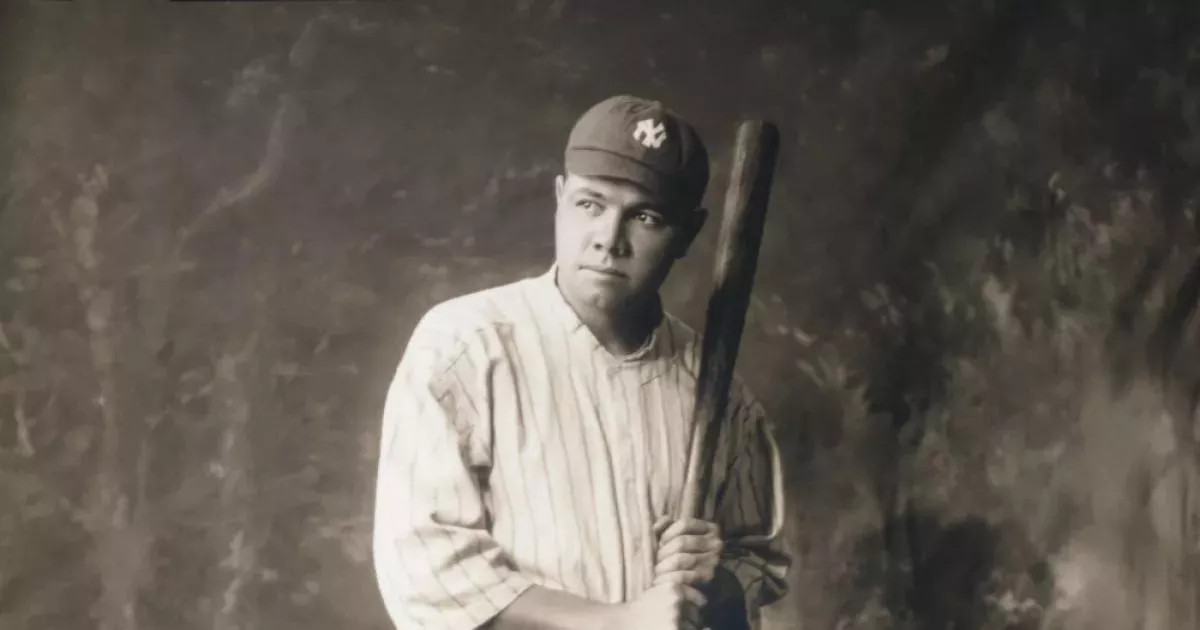Babe Ruth, nicknamed "the Bambino" and "the Sultan of Swat," was a legendary American baseball player whose MLB career spanned from 1914 to 1935. Initially a star left-handed pitcher for the Boston Red Sox, he rose to prominence as a slugging outfielder for the New York Yankees. Ruth is widely regarded as one of the greatest sports heroes in American culture and is considered by many to be the greatest baseball player of all time. He was elected to the Baseball Hall of Fame in 1936 as one of its inaugural members.
1902: Ruth Breaks AL single-season mark
On July 29, 1919, Babe Ruth matched the AL single-season mark of 16 home runs, set by Ralph "Socks" Seybold in 1902.
March 7, 1914: First appearance as a professional ballplayer
On March 7, 1914, Babe Ruth made his first appearance as a professional ballplayer in an inter-squad game, playing shortstop and pitching the last two innings, contributing to a 15–9 victory. He also hit a long home run during his second at-bat.
July 11, 1914: Ruth's arrival in Boston and first game with the Red Sox
On July 11, 1914, Babe Ruth arrived in Boston and won his first game as a pitcher for the Red Sox that afternoon, with a score of 4-3 over the Cleveland Naps. The catcher was Bill Carrigan, who was also the Red Sox manager. Also on this day, Ruth met Helen Woodford, who would become his first wife.
July 30, 1914: Red Sox to Send Replacement to Grays
On July 30, 1914, Boston Red Sox owner Joseph Lannin, who had recently purchased the Providence Grays, announced that the Red Sox would send a replacement player to the Grays. This announcement was made to appease Providence fans upset about losing a star player. Babe Ruth was intended to be this replacement, but his move was initially delayed.
August 18, 1914: Ruth Joins the Grays
On August 18, 1914, Babe Ruth officially joined the Providence Grays, a minor league team. He was deeply influenced by the team's manager, "Wild Bill" Donovan, and credited Donovan with teaching him a great deal about pitching.
March 1915: Ruth Attends Spring Training
In March 1915, Babe Ruth reported to Hot Springs, Arkansas, for his first major league spring training with the Boston Red Sox.
August 1915: Warhop concludes MLB career
In August 1915, Jack Warhop concluded a major league career of eight seasons, notable for being the first major league pitcher to give up a home run to Babe Ruth.
1915: Ruth's Successful 1915 Season
In 1915, Babe Ruth finished the season with an 18-8 record as a pitcher and batted .315 with four home runs. Although the Red Sox won the AL pennant, Ruth was not called upon to pitch in the 1915 World Series but was used as a pinch hitter.
1916: Carrigan Retires After 1916 Season
After the 1916 season, Red Sox player and manager Carrigan retired and returned to his native Maine. During the same offseason, Lannin sold the team to a group headed by Harry Frazee, who hired Jack Barry as manager.
1916: Ruth's Dominance in 1916
In 1916, Babe Ruth had repeated pitching duels with Walter Johnson. Ruth went 23-12 for the season, with a 1.75 ERA and nine shutouts, both of which led the league. The Red Sox won the pennant and World Series, with Ruth winning Game 2 in 14 innings.
September 1917: Conscription Introduced
In September 1917, conscription was introduced in the United States due to World War I, affecting baseball players and leading to changes in team management.
1917: Ruth's 1917 Season
In 1917, Babe Ruth led the league with 35 complete games and went 24-13 with a 2.01 ERA. He was ejected from a game on June 23 against Washington and suspended. Ernie Shore relieved him and retired all 26 batters.
1918: Ruth's 1918 Season
In 1918, Babe Ruth primarily played as an outfielder due to World War I shortening the season. He hit .300 with 11 home runs, tying for the major league home run title. He also had a 13–7 pitching record with a 2.22 ERA. In 1968 and 1969, there were considerations to adjust his recorded home run statistics.
1918: Red Sox Win 1918 World Series
In 1918, the Red Sox won their third pennant in four years and faced the Chicago Cubs in the World Series. Babe Ruth pitched and won Game One, a 1-0 shutout. He also pitched in Game Four, which the Red Sox won, giving Ruth his second win of the Series. The Red Sox won the Series four-games-to-two. He also set a record for consecutive scoreless innings that stood for over 40 years.
1918: Ruth ties career best
In July 1919, Babe Ruth tied his career-best of 11 home runs from 1918.
March 1919: Ruth Accepts Three-Year Contract
In March 1919, Babe Ruth reportedly accepted a three-year contract for a total of $27,000 with the Boston Red Sox, following protracted negotiations.
December 26, 1919: Frazee Sells Ruth's Contract to the Yankees
On December 26, 1919, Harry Frazee, owner of the Boston Red Sox, sold Babe Ruth's contract to the New York Yankees, a transaction that would alter the course of baseball history.
1919: Speculation about Ruth's 1920 Performance
Baseball statistician Bill James theorized that Babe Ruth's 1920 explosion might have happened in 1919 under different circumstances, such as a full season, less pitching, and a different home field.
1919: My Lady Friends Play Opening
In 1919 the play "My Lady Friends" produced by Frazee opened, which was later used as the basis for the musical No, No, Nanette.
1919: Ruth Focuses on Hitting in 1919
In 1919, Babe Ruth was primarily used as a hitter and played in 130 games and only pitched in 17, compiling a 9–5 record. Ruth's concentration on hitting led to an unprecedented spell of home runs.
January 6, 1920: Ruth's Sale to Yankees Announced
On January 6, 1920, the sale of Babe Ruth to the New York Yankees was officially announced. Ruth agreed to fulfill the remaining two years of his contract with a $20,000 bonus payable over two seasons.
April 1920: Yankees' Early Season Performance
At the end of April 1920, the Yankees had a 4-7 record, while the Red Sox led the league with a 10-2 record.
August 1920: Death of Ray Chapman
In August 1920, Ray Chapman died after being struck by a pitched ball, leading to changes in baseball rules and practices.
1920: Yankees Jersey
In 1920, Babe Ruth's Yankees jersey that was later sold for $4.4 million.
1920: First Installment Due for Ruth Sale
In 1920, a $25,000 payment was due on November 1 as part of the sale of Babe Ruth to the Yankees.
1920: Barrow Hired as Yankees Business Manager
In 1920, after the death of Harry Sparrow, Ruppert and Huston hired Ed Barrow to be the Yankees' business manager.
1921: Ruth Participates in Barnstorming Tour
After the 1921 World Series, Babe Ruth and teammates participated in a barnstorming tour, violating baseball rules.
1921: Ruth Breaks Home Run Record and Leads Yankees to Pennant
In 1921, Babe Ruth broke Roger Connor's career home run record and set a new single-season record with 59 home runs, leading the Yankees to their first pennant.
1921: Ruth's Contract Renegotiation Demands
In 1921, Babe Ruth demanded that his salary of $10,000 per year be doubled, or he would sit out the season. Ruth had signed the contract before the 1919 season.
1921: Second Installment Due for Ruth Sale
In 1921, a $25,000 payment was due on November 1 as part of the sale of Babe Ruth to the Yankees.
1921: Baby Ruth Candy Bar Marketed
In 1921, the Baby Ruth candy bar was first marketed by the Curtiss Candy Company, at the height of the craze over Babe Ruth.
1921: Yankees Lose the World Series to the Giants
In the 1921 World Series, the Yankees lost to the New York Giants, five games to three. Ruth hit .316 with one home run but was injured during the series.
March 4, 1922: Ruth Signs New Contract
On March 4, 1922, Babe Ruth signed a new three-year contract for $52,000 a year with the Yankees, a record-breaking salary at the time.
May 20, 1922: Ruth's Suspension Ends
On May 20, 1922, Babe Ruth's suspension for participating in a barnstorming tour ended.
August 1922: Barnstorming Rule Changed
In August 1922, the rule prohibiting World Series participants from playing in exhibition games was changed to allow limited barnstorming with the commissioner's permission.
1922: Giants Decline to Renew Yankees' Lease
In 1922, Giants owner Charles Stoneham announced that the Yankees' lease at the Polo Grounds would not be renewed after that season.
1922: Final Installment Due for Ruth Sale
In 1922, a $25,000 payment was due on November 1 as part of the sale of Babe Ruth to the Yankees, completing the financial transaction.
1922: Ruth's 1922 Season and World Series Performance
In 1922, despite being named Yankees' captain then stripped of it, Ruth's season was considered a disappointment and his performance in the World Series was poor, as the Yankees lost to the Giants.
April 18, 1923: Yankee Stadium Opens
On April 18, 1923, Yankee Stadium opened, and Babe Ruth hit the first home run in the new ballpark, quickly dubbed "the House that Ruth Built".
1923: Yankees Win AL Pennant and World Series
In 1923, the Yankees, led by Babe Ruth, dominated the season, securing the AL pennant by a significant 17-game margin. Ruth achieved a career-high .393 batting average, tied for the most home runs in the major leagues with 41, and hit 45 doubles. The Yankees faced the Giants in the World Series for the third consecutive year and won their first World Series championship. Ruth's performance in the series included a .368 batting average, three home runs, and a slugging percentage of 1.000.
1924: Ruth Wins AL Batting Title
In 1924, despite the Yankees battling injuries and a strong challenge from the Senators, Babe Ruth won his only AL batting title with a .378 average and led the league with 46 home runs.
1925: Ruth Works Out to Regain Shape
During the offseason of 1925-26, Babe Ruth worked out at Artie McGovern's gym in an effort to get back into shape. The Yankees, rebuilt with young players like Tony Lazzeri and Lou Gehrig, were not expected to win the pennant.
1925: Ruth's Illness and Poor Performance
In early 1925, Babe Ruth's health deteriorated significantly, leading to his worst season as a Yankee, playing just 98 games. After carousing in Hot Springs, Arkansas, and collapsing in Asheville, North Carolina, he was hospitalized in New York. Although the exact cause of his ailment has never been confirmed, he played only 98 games, finished the season with a .290 average and 25 home runs. The Yankees finished next to last in the AL with a 69–85 record.
1926: Ruth's Promise to Johnny Sylvester
During the 1926 World Series, Babe Ruth promised Johnny Sylvester, a hospitalized 11-year-old boy, that he would hit a home run for him, and he delivered on that promise. Ruth's salary of $52,000 was far more than any other baseball player, but he made at least twice as much in other income, including $100,000 from vaudeville.
1926: Yankees Win Pennant, World Series Loss
In 1926, Babe Ruth returned to form, batting .372 with 47 home runs and 146 RBIs, leading the Yankees to a pennant win. In the World Series against the St. Louis Cardinals, Ruth hit three home runs in Game Four. However, the Yankees lost the series in Game Seven when Ruth was thrown out attempting to steal second base.
1927: Stared Out At Tom Zachary
In 1927, Babe Ruth stared out at Tom Zachary on a certain September afternoon.
1927: Yankees Dominate, Ruth Breaks Home Run Record
In 1927, the New York Yankees, known as Murderers' Row, dominated baseball, winning a then-AL-record 110 games and the AL pennant by 19 games. Babe Ruth broke his own single-season home run record on September 30th, hitting his 60th homer. The Yankees then swept the Pittsburgh Pirates in the World Series.
1927: Members of the 1927 Yankees
On July 4, 1939, members of the 1927 Yankees were present to honor Lou Gehrig.
1928: Yankees Win World Series
In 1928, the Yankees overcame a mid-season slump to clinch the pennant. Babe Ruth hit 54 home runs, ending the season on a slump, and the Yankees swept the favored Cardinals in the World Series. Ruth batted .625 and hit three home runs in Game Four.
1929: Yankees Finish Second, Huggins Dies
In 1929, despite Ruth's strong performance, the Yankees finished second to the Athletics. Manager Huggins died on September 25th, succumbing to erysipelas.
1929: Yankees Adopt Uniform Numbers
In 1929, the Yankees began wearing uniform numbers to help fans identify players, with Babe Ruth wearing number 3. The Yankees adopted their now-iconic pinstriped uniforms in hopes of making Ruth look slimmer, they had been wearing pinstripes since 1915.
January 7, 1930: Salary Negotiations Breakdown
On January 7, 1930, salary negotiations between Babe Ruth and the Yankees broke down when Ruth rejected the Yankees' offers and demanded $85,000 over three years, eventually settling for $80,000 annually.
1930: Ruth's Performance, Yankees' Third-Place Finish
In 1930, Babe Ruth hit .359 with 49 home runs and 153 RBIs. The Athletics won their second consecutive pennant and World Series as the Yankees finished third. Ruth unsuccessfully sought the manager job, with Joe McCarthy replacing Shawkey.
1931: Yankees Second to Athletics
In 1931, despite the team improving, the Yankees were no match for the Athletics. Babe Ruth hit .373, with 46 home runs and 163 RBIs.
1932: Ruth desires to be a manager
In 1932, Babe Ruth expressed that he was not ready to leave the field, despite being considered for the Red Sox managerial position.
1932: "Called Shot" Jersey Sold
In 1932, The jersey Babe Ruth wore when hitting his "called shot" home run in the World Series.
1932: 1932 World Series Against the Cubs
In 1932, the Yankees played the Chicago Cubs in the World Series, marked by animosity due to a dispute over World Series shares. During Game Three in Chicago, amidst hostile crowds, Babe Ruth allegedly pointed towards center field before hitting a home run, which became known as Babe Ruth's called shot. The Yankees won the game and clinched the series the next day.
1932: Yankees Win Pennant
In the 1932 season, the Yankees went 107–47 and won the pennant. Ruth's effectiveness had decreased somewhat, but he still hit .341 with 41 home runs and 137 RBIs.
June 1933: Golf with Lyn Lary
In June 1933, Babe Ruth played golf at Rye Golf Club with teammate Lyn Lary, posting the best score.
July 6, 1933: First MLB All-Star Game
On July 6, 1933, Babe Ruth played right field in the first Major League Baseball All-Star Game at Comiskey Park in Chicago. He hit the first home run in All-Star Game history, a two-run blast against Bill Hallahan in the third inning, helping the American League win the game 4-2.
July 13, 1934: 700th Career Home Run
On July 13, 1934, Babe Ruth hit his 700th career home run. Despite a .288 batting average with 22 home runs, it was considered "merely mortal" compared to his earlier performance. He was also selected to the AL All-Star team.
1934: Barnstorming tour and Cricket
During the 1934-35 offseason, Babe Ruth went on a barnstorming tour of the Far East with his wife. In the United Kingdom in 1934, he was introduced to cricket but lost interest when he learned of the low pay.
1934: Hat from the 1934 season
In 1934, Babe Ruth had a hat from the season.
1934: Desire to Manage Yankees
In 1934, Babe Ruth openly campaigned to manage the Yankees, a job that was never a serious possibility as the team owner supported the current manager. By the end of the season, Ruth hinted that he would retire if he wasn't named manager.
1934: Managerial Opportunities
In 1934, Babe Ruth was offered the managerial position for the Newark Bears, the Yankees' top minor-league team, but declined at the advice of his wife and business manager. He also delayed a meeting with the Tigers, who were considering him for a player-manager role, to go on a trip to Hawaii. The Tigers ultimately hired Mickey Cochrane.
February 26, 1935: Trade to the Boston Braves
On February 26, 1935, the Yankees traded Babe Ruth to the Boston Braves, where he was announced as a team vice president, assistant manager, and player. He was promised a share of the profits and a possible co-ownership of the team with an opportunity to succeed the current manager as early as 1936.
May 25, 1935: Last Great Game
On May 25, 1935, Babe Ruth played one of his last great games in Pittsburgh, going 4-for-4 with three home runs, including his final career home run, which was the first ball hit completely out of Forbes Field. He retired shortly after on June 2.
1936: Hall of Fame Induction
In 1936, Babe Ruth was one of the first five players elected to the Baseball Hall of Fame, however, he was the only one not offered a managerial position.
1936: Potential managerial position
In 1936, Babe Ruth was promised the possibility of succeeding McKechnie as manager of the Boston Braves.
1937: Lack of Managerial Offers
By the end of the 1937 season, no major league team had offered Babe Ruth a managerial position, with owners citing his personal habits as a reason. He was not considered for the Cleveland Indians managerial job, and many felt Ruth was unfairly treated in not being given an opportunity to manage a major league club.
1938: First Base Coach for the Dodgers
In 1938, Babe Ruth was hired as the first base coach for the Brooklyn Dodgers. His duties primarily involved appearing in uniform and encouraging base runners, with no opportunity to manage the team and a request to return as a pinch hitter denied.
July 4, 1939: Lou Gehrig Appreciation Day
On July 4, 1939, Babe Ruth spoke at Lou Gehrig Appreciation Day at Yankee Stadium.
1946: Rejection Letter
In 1946, Babe Ruth contacted the new Yankees boss MacPhail, but he was sent a rejection letter.
August 16, 1948: Death of Babe Ruth
Babe Ruth, a legendary figure in baseball, passed away on August 16, 1948, due to nasopharyngeal cancer. His death marked the end of an era for a player who had become a significant part of American culture.
1961: Ford Breaks Ruth's Record
In 1961, Whitey Ford broke Babe Ruth's World Series record of 29+2⁄3 consecutive scoreless innings, which had stood for more than 40 years.
1965: Yankees Losing Record
In 1965, the Yankees had their first season with a losing record since 1925, marking a low point for the team.
1968: Special Committee Rules Change
In 1968, the Special Baseball Records Committee unanimously ruled that a play on July 8, 1918 should be counted as a home run.
1969: Greatest Player Ever
In 1969, Babe Ruth was named baseball's Greatest Player Ever in a ballot commemorating the 100th anniversary of professional baseball.
1969: Committee Reverses Decision
In 1969, the Special Baseball Records Committee reversed its 1968 decision, in part due to preserving Ruth's home run total.
1978: Guidry Ties Ruth's Shutout Record
In 1978, Ron Guidry tied Babe Ruth's 1916 league record for shutouts in a season by a left-handed pitcher, with nine shutouts.
1983: Honored with US Postal Stamp
In 1983, the United States Postal Service honored Babe Ruth with a twenty-cent stamp.
1991: Shore's Feat Amended
In 1991, Major League Baseball's (MLB) Committee on Statistical Accuracy amended Ernie Shore's 1917 feat of retiring 26 batters after relieving Babe Ruth to be listed as a combined no-hitter.
1993: Most Recognized Athlete
In 1993, the Associated Press reported that Muhammad Ali was tied with Babe Ruth as the most recognized athlete in America.
1995: Ruth Estate Licenses Likeness
In 1995, the Ruth estate licensed his likeness for use in an advertising campaign for Baby Ruth.
1998: Ranked Greatest Baseball Player
In 1998, The Sporting News ranked Babe Ruth as number one on the list of "Baseball's 100 Greatest Players".
1999: Granddaughter comments on managerial rejection
In 1999, Babe Ruth's granddaughter, Linda Tosetti, stated that Ruth felt hurt and depressed by his inability to land a managerial role with the Yankees.
1999: Charlie Devens Interview
In 1999, Charlie Devens, Babe Ruth's surviving teammate in the 1932 World Series, was interviewed about the 'called shot' incident, and he did not believe that Ruth intended to indicate where he planned to hit the ball.
1999: Named to All-Century Team
In 1999, baseball fans named Babe Ruth to the Major League Baseball All-Century Team. In the same year, the Associated Press named Ruth the greatest athlete of the 20th century, while an ESPN poll ranked him as the second-greatest North American athlete of the century.
December 2, 2004: Home Run Bat Sold at Auction
On December 2, 2004, the bat with which Babe Ruth hit the first home run at Yankee Stadium fetched $1.265 million at auction.
2005: Baby Ruth Official Candy Bar of MLB
In 2005, Baby Ruth became the official candy bar of Major League Baseball.
2005: World Series Game Length Record
In 2005, another World Series game of 14 innings was played, matching the length of the game Babe Ruth won in 1916.
2012: Yankees Jersey sold for $4.4 million
In 2012, Babe Ruth's 1920 Yankees jersey sold for $4.4 million (equivalent to $6.05 million in 2024). Also in 2012, a hat of Ruth's from the 1934 season set a record for a baseball cap when David Wells sold it at auction for $537 thousand.
2017: World Series Ring Sold
In 2017, Charlie Sheen sold Babe Ruth's 1927 World Series ring for $2 million, a record for a championship ring.
2018: Posthumous Presidential Medal of Freedom
In 2018, Babe Ruth was posthumously awarded the Presidential Medal of Freedom by President Donald Trump; his grandson Tom Stevens accepted the award on his behalf.
2022: New York Mount Rushmore of Sports
In 2022, The Sporting News named Babe Ruth on their "New York Mount Rushmore of Sports".
2022: Bat sold for $1.6 million
In 2022, a bat used by Babe Ruth sold for $1.6 million.
2023: Bat sold for $1.85 million
In 2023, a bat used by Babe Ruth sold for $1.85 million.
2024: "Called Shot" Jersey Sold for Record Amount
In 2024, Babe Ruth's jersey he wore when hitting his "called shot" home run in the 1932 World Series sold for a record $24 million.
2025: Ruth's Salary Record
As of 2025, Babe Ruth's 1930 salary was more than 2.4 times greater than the next-highest salary that season, a record margin.
Mentioned in this timeline

Donald John Trump is an American politician media personality and...
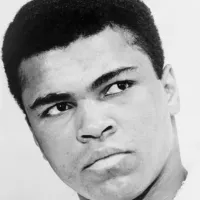
Muhammad Ali nicknamed The Greatest was an iconic American professional...

Elvis Presley the King of Rock and Roll was a...
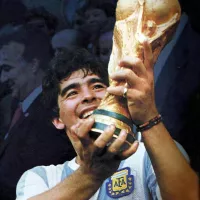
Diego Maradona was an Argentine professional football player and manager...

The Catholic Church the largest Christian church globally with over...

News encompasses information about current events disseminated through various media...
Trending
44 minutes ago Greenland's Ice Churning: Scientists Discover Molten Rock-like Activity Underneath the Ice Sheet.
2 hours ago Sadie Sink and Noah Jupe Star in West End's Romeo & Juliet

2 hours ago A24's 'Marty Supreme' Breaks Records; Costume Design & Cinematography Spotlighted.

3 hours ago Vince McMahon Involved in Horrifying Car Crash: Footage Released
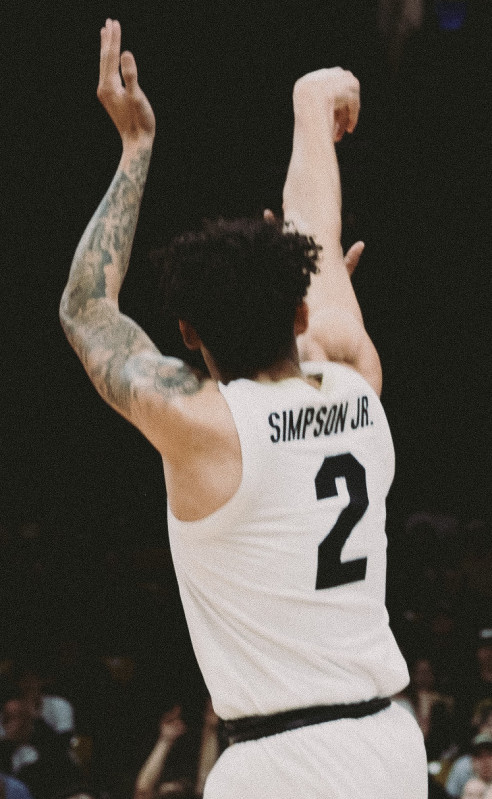
4 hours ago KJ Simpson signs two-way contract with Denver Nuggets after Hornets trade casualty.
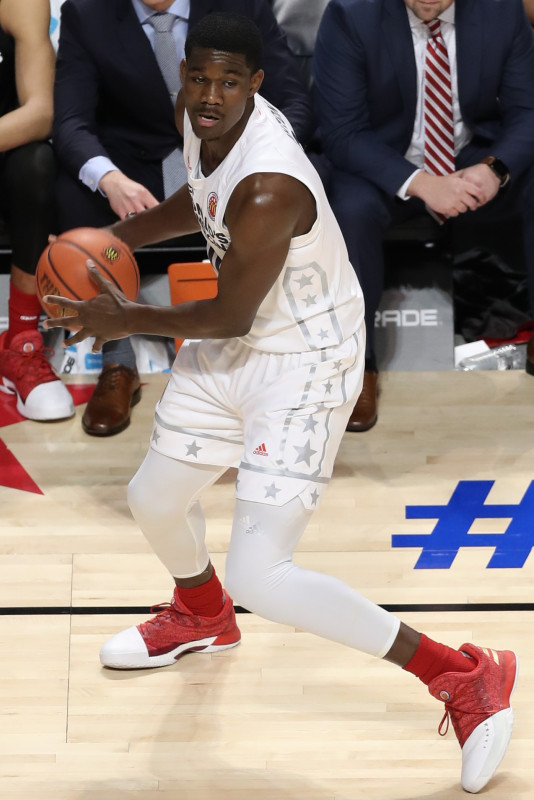
3 days ago Deandre Ayton Detained in Bahamas Airport for Marijuana Possession, Later Released.
Popular

Jesse Jackson is an American civil rights activist politician and...
Randall Adam Fine is an American politician a Republican who...

Barack Obama the th U S President - was the...

Ken Paxton is an American politician and lawyer serving as...

Bernie Sanders is a prominent American politician currently serving as...
WWE Raw a professional wrestling television program by WWE airs...
